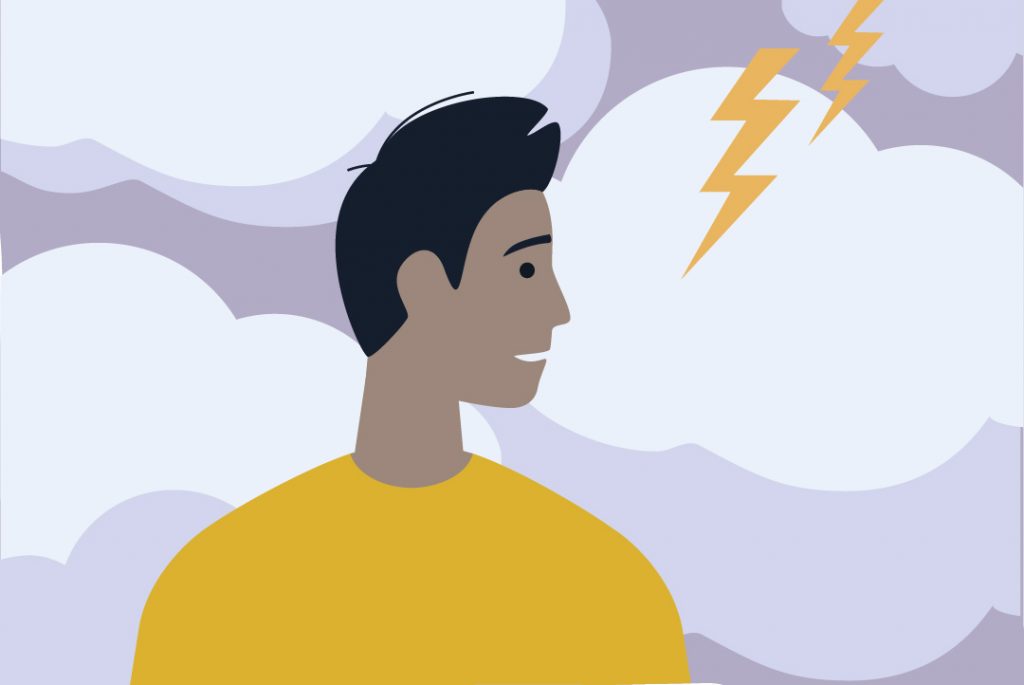EXPLORE MORE
MAY 2023
The emotional side of disaster
Hurricanes, earthquakes, train derailments, mass shootings, wildfires, you name it. Disasters lead the nightly news and leave a wake of destruction. But sometimes the emotional stress they cause lasts far longer and can result in greater harm than the more immediate financial and physical damages do.
If you’ve experienced a disaster and still feel the emotional impact, there are actions you can take to feel better. Understanding your responses to upsetting events can help you cope with your feelings, thoughts and behaviors, and help you on the path to recovery.
Looking for more? Find other articles below

After a disaster, your emotional well-being needs care
Remember that:
- It’s normal to feel anxious about your own safety and that of your family and close friends.
- Profound sadness, grief and anger are normal reactions to an abnormal event.
- Acknowledging your feelings helps you recover.
- Focusing on your strengths and abilities helps you heal.
- Accepting help from community programs and resources is healthy.
- Everyone has different needs and ways of coping. It’s common to want to strike back at people who have caused great pain.
Find ways to ease disaster-related stress
Here are some actions you can take:
- Reach out to Resources For Living® (RFL®)* for in-the-moment and ongoing emotional support for personal issues, 24/7. Remember you have six free counseling sessions that can help you deal with post-disaster stress and other mental health concerns you may experience after a traumatic event in your community.
- Talk with someone you trust about your feelings of anger, sorrow and other emotions — even though it may be difficult.
- Don’t hold yourself responsible for the disastrous event or be frustrated if you feel you can’t help directly in the rescue work.
- Take steps to promote your own physical and emotional healing by eating a healthy diet, getting plenty of sleep, exercising, relaxing and meditating.
- Try to maintain a normal family and daily routine, and limit demanding responsibilities for yourself and your family.
- If there are memorials, participate in them.
- Turn to your support groups of family, friends and religious institutions.
- Ensure that you’re ready for future emergencies by restocking your disaster supplies kits and updating your family disaster plan. Taking these positive actions can be comforting.
Your top concern after a disaster should be your own health and that of your family. To feel in control of your life and situation, limit your media exposure and keep your routines consistent. Also seek professional help for yourself and/or loved ones who are suffering emotionally and physically.
Disasters don’t happen often, but they do happen. Fortunately, there are people and organizations you can turn to for help.
Source: Resources For Living. Coping with disaster.
Resources for you
- Resources For Living® (RFL®)* can help you and your family prepare for or recover from a weather event, mass shooting or other natural disaster by linking you with resources that can provide:
- Temporary housing, food, clothing and other necessities
- Car, roof and house repairs
- Counseling
- Transportation, and much more
- RFL is available to help 24/7. Visit RFL or call 833-721-2320 (TTY: 711) to learn more.
- AbleTo can help with depression and overall emotional well-being at any time, including after a disaster. To get started, visit AbleTo.com/Costco or call 833-881-1444.
- Reach the Suicide & Crisis Lifeline by calling or texting 988. You can also call or text for someone else who may need immediate help.
- *Resources For Living is available to all employees and members of their household, including children up to age 26 living away from home.
- Resources For Living® (RFL®)* can help you and your family prepare for or recover from a weather event, mass shooting or other natural disaster by linking you with resources that can provide:
- Temporary housing, food, clothing and other necessities
- Car, roof and house repairs
- Counseling
- Transportation, and much more
- RFL is available to help 24/7. Visit RFL or call 833-721-2320 (TTY: 711) to learn more.
- Reach the Suicide & Crisis Lifeline by calling or texting 988. You can also call or text for someone else who may need immediate help.
- *Resources For Living is available to all employees and members of their household, including children up to age 26 living away from home.
- Resources For Living® (RFL®)* can help you and your family prepare for or recover from a weather event, mass shooting or other natural disaster by linking you with resources that can provide:
- Temporary housing, food, clothing and other necessities
- Car, roof and house repairs
- Counseling
- Transportation, and much more
- RFL is available to help 24/7. Visit RFL or call 833-721-2320 (TTY: 711) to learn more.
- AbleTo can help with depression and overall emotional well-being at any time, including after a disaster. To get started, visit AbleTo.com/Costco or call 833-881-1444.
- Reach the Suicide & Crisis Lifeline by calling or texting 988. You can also call or text for someone else who may need immediate help.
- *Resources For Living is available to all employees and members of their household, including children up to age 26 living away from home..

